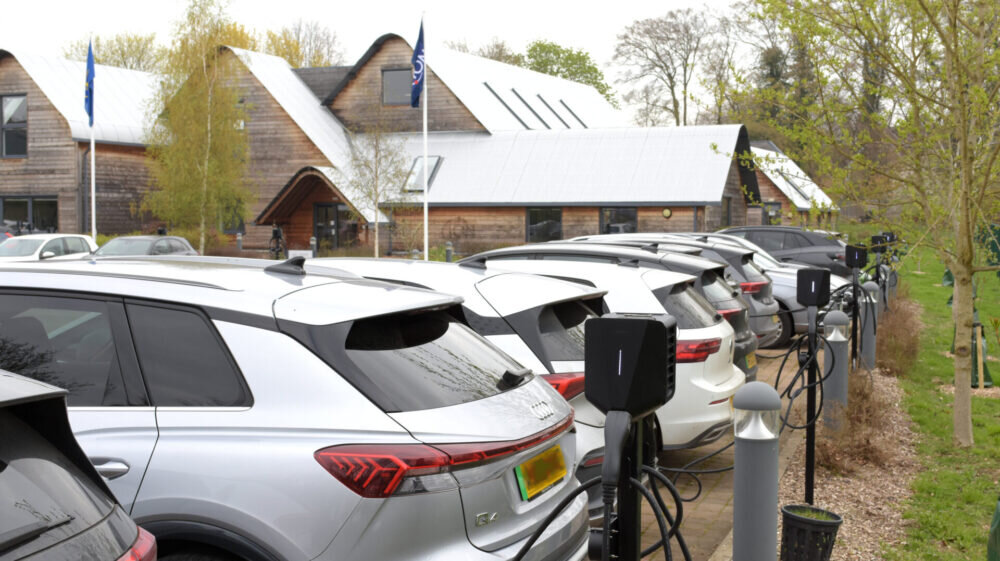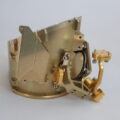Leading on sustainability is a popular aspiration for many businesses, but at ION Science, environmental protection was part of the company’s identity long before anthropogenic climate change was widely accepted. In the following article we explore the ways in which the company has built sustainability into everything it does, and how the benefits extend beyond environmental protection.
With a 34-year history in developing gas sensing technologies that help protect worker safety and the environment, ION Science has a keen understanding of the relationship between gases and climate change, but sustainability is more than just reducing greenhouse gas emissions. Initiatives in energy efficiency, recycling, waste reduction and water optimisation all help improve the environmental and financial sustainability of a business, but there are many other, less obvious, advantages.
Doing the right thing
ION Science firmly believes that it is every company’s duty to continuously seek ways to minimise environmental impact. For this reason, ION Science’s publicly stated vision has always been ‘To protect lives and preserve the environment’. Having established this as the company’s vision, everything that it does, and all the decisions that it makes, have to be aligned with this concept.
Underlining the importance of sustainability to its business, a recent survey of ION Science customers revealed an overwhelming 65.9% of them confirming that sustainability matters to them when making purchase decisions.
Implementing sustainability
Start from the top. If the MD or CEO is not on board, there is little hope that staff will follow suit. Instead, they will assume that their work priorities lie elsewhere. So, at ION Science, sustainability starts with Duncan Johns, the Managing Director. Duncan firmly believes that a business must perform highly in all areas of ESG (Environment, Social & Governance), partly because people want to work for a business that is doing something worthwhile, which, for ION Science, means protecting lives and preserving the environment. However, people also want their company to play its part, through its own operations, so that is also where ION delivers the E in ESG. More on that below.

Social factors include the way that ION treats its staff, including wages, workplace environment, wellbeing, skills, training & development, equality, diversity and inclusion. They also include suppliers and customers, as well as the local communities within which ION operates.
Governance is also vitally important, because staff have to know that the business is being managed effectively, and with honesty and integrity. Business objectives have to be clear and consistent, and staff need to be confident that the company is able to deliver on the promises that it makes to all stakeholders.
One of the most effective ways to implement sustainability, is to create company facilities that are demonstrably environmentally friendly, and this is an area in which ION Science has made remarkable progress. Visitors to the ION Science UK head office and manufacturing facility in Fowlmere frequently express awe and admiration for the workspace that has been created.
In 2017, ION Science designed and built a sustainable, state of the art, purpose-built £4.5 million facility to meet ambitious global growth plans. Known as ‘The Hive’ the new facility embodies many of the characteristics of a beehive; providing a safe, pleasant, environmentally friendly workplace for a community of workers. Duncan Johns says: “We particularly liked the beehive theme when our new buildings were being designed. Bees work collaboratively for the greater good; they enhance the local environment through pollination and biodiversity; they use natural materials to construct parts of the hive; they employ smart methods of communication, and they even manage climate control within the hive.”
Featuring a technologically advanced and eco-friendly design, the Hive was specially constructed to achieve the highest possible hygiene, quality and environmental standards. In addition to the provision of a fantastic working environment with well-equipped break-out spaces, the Hive also features landscaped gardens and recreational areas for staff and visitors to enjoy.
Providing more light assembly, research and office space, the work environment boasts a range of exciting design features, including:
- Ground source heat pump which extracts heat from the ground via bore holes underneath the car park and provides heating and hot water for the building without burning fossil fuels
- Modular access flooring which provides flexibility in the distribution of building services and building layout
- Building design which maximises natural daylight using large windows, doors and rooflights
- Structural insulated panels (SIPs) as the main structural element of both walls and pitched roofs providing a highly insulated and airtight building envelope for energy efficiency and resistance to damp and cold issues
- Internal layout with glazed screens connecting areas and teams
- Eco-friendly landscaping with a pond to enhance biodiversity
- Free car park with electric vehicle chargers for its staff and visitors
As a result of further company growth, a new research and development (R&D) facility is currently being built to complement the appearance of the main building and enhance its environmental credentials. The new R&D facility will also use sustainable materials, electric vehicle charging points and ecologically designed landscaping to support local wildlife. It will also provide additional employment opportunities for the local community.
As a gas sensing technology manufacturer, ION Science is acutely aware of the importance of monitoring – ‘What gets measured, gets managed’ – so ION is currently in the process of implementing ISO14001:2015, the Environmental Management Standard.
One of ION’s important environmental objectives is to reduce the amount of waste electrical and electronic equipment (WEEE) that is incinerated or sent to landfill sites. Under the WEEE Regulations, organisations enable the recovery, reuse and recycling of products and components. In addition, ION is constantly seeking eco-friendly packaging solutions that help to reduce the company’s carbon footprint.

Protecting lives and preserving the environment
Perhaps ION Science’s greatest positive impact on the environment is through the sensors and instruments that it manufactures. The company’s photoionisation detectors (PIDs) are used worldwide for the detection of volatile organic compounds (VOCs) – a large group of gases that are generally harmful to both health and the environment.
A wide variety of industrial processes produce fugitive or process emissions that contain VOCs. These processes include those that involve petrochemicals, solvents, paints, coatings, adhesives and cleaning chemicals, for example. Some VOCs are harmful to the skin and can be absorbed, but volatility makes it possible for them to be breathed in, causing negative health effects ranging from minor irritation to death.
In the outdoor environment, VOCs are involved in the formation of ozone, a constituent of photochemical smog. At ground level, ozone is generated when VOCs react with oxygen sources such as nitrogen oxides and carbon monoxide in the atmosphere in the presence of sunlight. Ozone can be harmful to health, particularly in children, the elderly, and people with cardiovascular problems such as asthma or COPD. Ground level ozone can also have harmful effects on sensitive vegetation and ecosystems.
Carbon dioxide is an important greenhouse gas (GHG) but many VOCs have a far greater Global Warming Potential (GWP) than CO2, so even trace emissions or leaks of these (mostly halogenated) VOCs can contribute to global warming.
Clearly, VOCs represent a major challenge in areas such as health, the environment and climate change. The detection and measurement of these VOCs is therefore essential, so ION’s PID sensors are deployed by instrument manufacturers and systems integrators all over the world, in a wide variety of applications.
The benefits of sustainability at ION Science
- ION Science staff benefit from knowing that they work for a sustainable company, that not only manufactures products that help protect the environment, but also works hard to minimise its own carbon footprint. This is one of the reasons for ION’s high staff retention rate.
- ION’s financial performance is enhanced when customers actively seek to do business with suppliers that uphold high sustainability standards.
- By creating a successful eco-friendly facility, ION has enhanced its reputation with the local community; creating harmony and building an aspirational business.
- With a sustainable building design, ION has minimised its energy costs and dramatically lowered the consumption of fossil fuels.
- The provision of free EV charging points encourages staff to save money and cascade the company’s sustainability goals into their personal lives.
Summarising, Duncan Johns says: “There are laws to protect health and the environment, but there are no regulations forcing companies like ours to help in the fight against climate change. Nevertheless, ION Science aims to take the lead in GHG emissions reduction.”
“We have built sustainability into every part of the company, and we have benefited considerably as a consequence. So, we hope that our success will inspire others to join us on our mission to protect lives, preserve the environment and limit the effects of climate change.”





